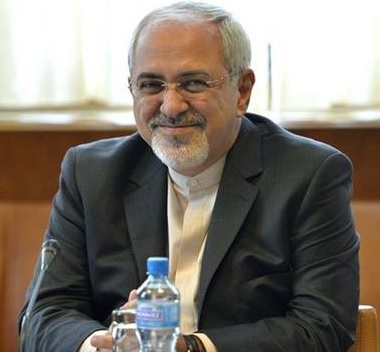Foreign Minister Mohammad Javad Zarif tried to calm Gulf states nervous about the Geneva nuclear agreement and Iran’s regional aspirations. Zarif kicked off his first official tour of the Sunni sheikhdoms with a visit to Kuwait on December 1. “Be assured that the nuclear deal is in favor of the stability and security of the region,” he told the press after meeting with Sheikh Sabah Khaled al Sabah. Zarif also attended the Manama Dialogue Regional Security Summit in Bahrain and visited Oman, Qatar and the United Arab Emirates.
— Javad Zarif (@JZarif) December 2, 2013 President Hassan Rouhani’s government has stepped up its outreach efforts to the Gulf since the interim nuclear agreement was brokered on November 24. Just four days after the negotiations concluded, UAE Foreign Minister Sheikh Abdullah bin Zayed visited Tehran to discuss three disputed islands in the Gulf. On December 4, Zarif visited the UAE and President Sheikh Khalifa bin Zayed al Nahyan accepted an invitation to visit Tehran.
The monarchies fear a comprehensive deal on Iran’s nuclear program that would leave it with a residual capability to eventually build a bomb. But they are also concerned that an agreement could allow Tehran to shed its pariah status and reemerge as a Gulf powerhouse. The following are excerpted remarks by Zarif and Bahraini Foreign Minister Sheikh Khalid bin Ahmed al Khalifa.
The monarchies fear a comprehensive deal on Iran’s nuclear program that would leave it with a residual capability to eventually build a bomb. But they are also concerned that an agreement could allow Tehran to shed its pariah status and reemerge as a Gulf powerhouse. The following are excerpted remarks by Zarif and Bahraini Foreign Minister Sheikh Khalid bin Ahmed al Khalifa.
Iranian Foreign Minister Mohammad Javad Zarif
“We believe that a new era has begun in ties between Iran and regional states which should turn into a new chapter of amicable relations through efforts by all regional countries.”
Dec. 1, 2013 in a meeting with Kuwaiti Foreign Minister Sheikh Sabah Khalid al Hamad al-Sabah
 “We believe that Iran and Saudi Arabia should work together in order to promote peace and stability in the region… This agreement cannot be at the expense of any country in the region. Our relations with Saudi Arabia should expand as we consider Saudi Arabia as an extremely important country in the region and the Islamic world… I am ready to go to Saudi Arabia, but it is just a matter of being able to arrange a mutually convenient time. I will visit it soon inshallah [God willing].
“We believe that Iran and Saudi Arabia should work together in order to promote peace and stability in the region… This agreement cannot be at the expense of any country in the region. Our relations with Saudi Arabia should expand as we consider Saudi Arabia as an extremely important country in the region and the Islamic world… I am ready to go to Saudi Arabia, but it is just a matter of being able to arrange a mutually convenient time. I will visit it soon inshallah [God willing]. “We expressed our appreciation for the very central and positive role that the [Omani] sultanate had played in facilitating these talks.”
Dec. 1, 2013 to the press in Doha, Qatar
“Iran’s ties with Oman are special… We feel that the relations among countries of the region should be built on mutual trust and enhancing the friendship bonds among them. The cooperation and common grounds in various theological, cultural, geographic, economic and political fields will help us build the ties.”
Atomic weapons are “illegal, immoral and non-human. We believe nuclear weapons harm our national security. We do not need any nuclear weapon at any level.”
Entering an arms race would be “a sort of suicide.”
Dec. 2, 2013 in a meeting with Omani Sultan Qaboos bin Said
Bahraini Foreign Minister Sheikh Khalid bin Ahmed al Khalifa
“We’ve clearly seen a change in Iranian language. But I don’t think we have seen a very clear change of policy. Maybe there’s one that led to the interim agreement, which is something that we welcome, and will hopefully reach a good and sustainable comprehensive agreement. But we still have a problem, Iran-Bahrain. We haven’t seen any progress on that.”
“I would like to see Iran send the very clear message by taking serious actions and steps that would allay the fears of the regional countries regarding interferences with internal affairs and supporting terrorist groups inside those countries.”
Dec. 8, 2013 in an interview with Al-Monitor
